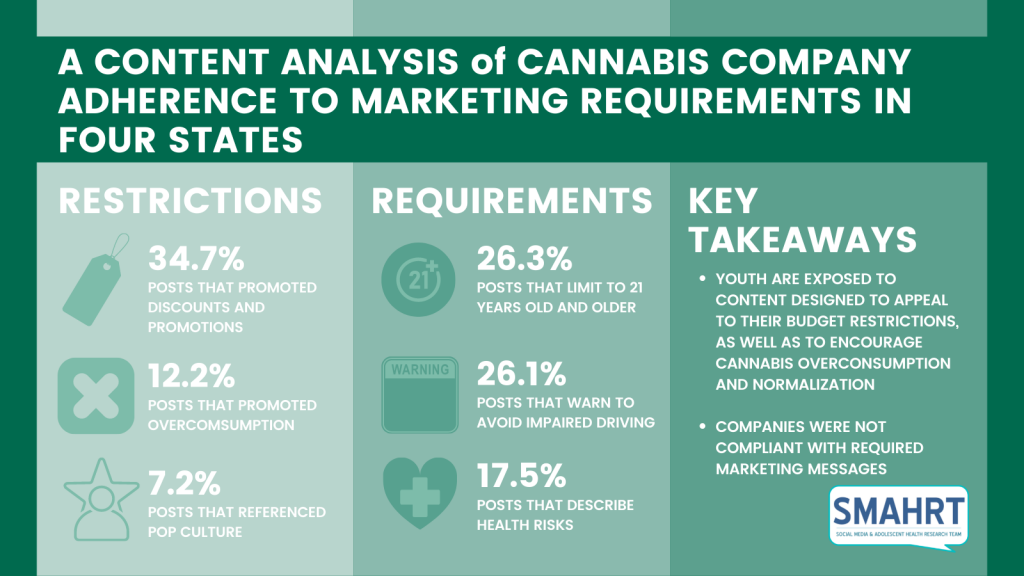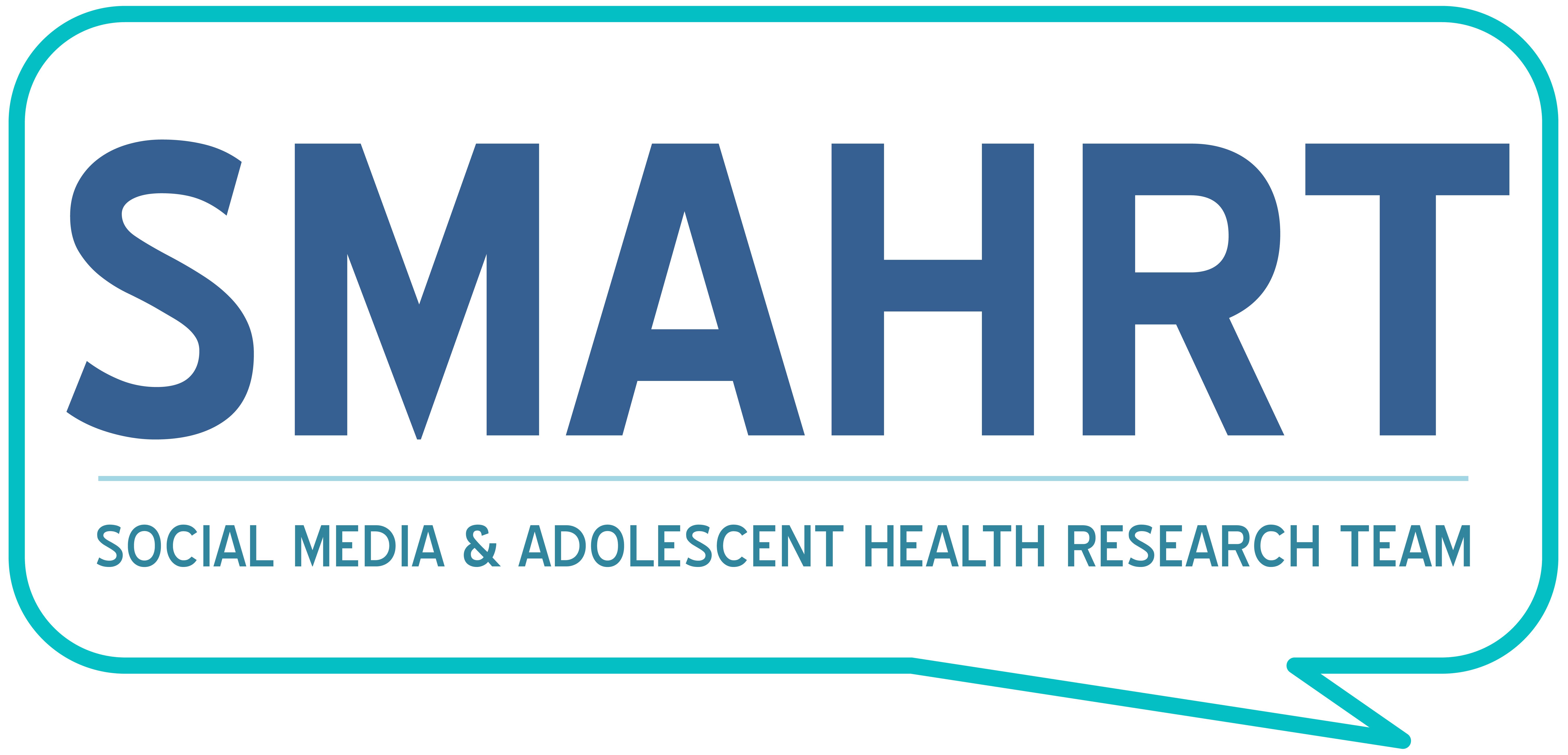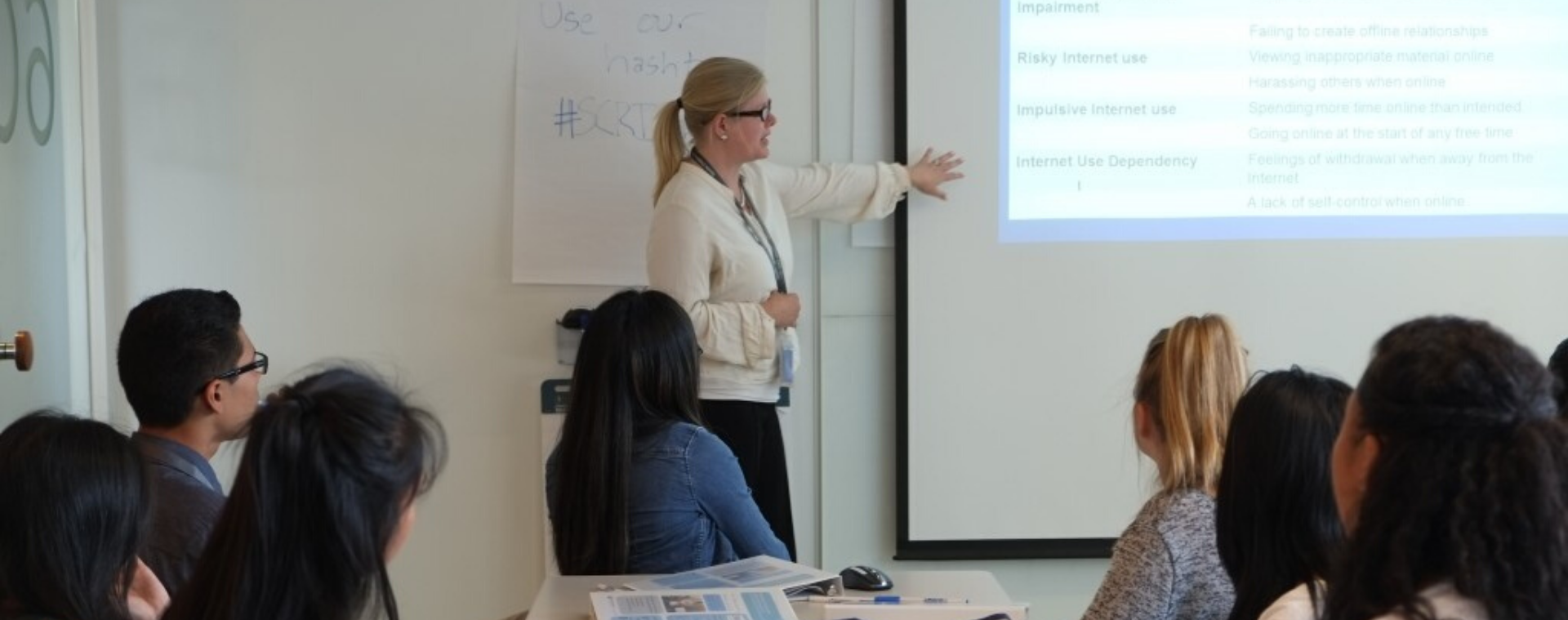
Cannabis for adult non-medical use was legalized in Washington in 2013, and ongoing SMAHRT research noticed a risk in cannabis posts on social media during that time. While many regulations exist to limit youth exposure to cannabis marketing on TV, newspapers and in neighborhoods, social media remains relatively unregulated.
To better understand how recreational retail cannabis companies were leveraging social media to reach users, as well as youth, Dr. Moreno partnered with several experts in the field of cannabis research: Dr. David Jernigan from Boston University, Dr. Jen Whitehill from University of Massachusetts and Dr. Pamela Trangenstein from ARG. This study, funded by the National Institute on Drug Abuse (NIDA), was planned and implemented the past couple of years, and we are excited to share the findings.
Background
Today, nine states including Alaska, Colorado, Oregon, and Washington have legalized recreational cannabis use. Companies in legalized states have turned to social media to promote their products.
This has led to concerns about youth exposure and access to the legalized drug.
Previous research in alcohol and tobacco have found that teens can be easily persuaded with media messages and their exposure to these messages can lead to future experimentation and heavy use. Knowing this, states that have legalized cannabis were tasked with putting policies in place to protect teens and children. Their current solution to this task is implementing policies that have been used in the past with alcohol and tobacco television and newspaper advertisements. Little is known about the effectiveness of these policies to protect teens and children.
Our newly published Journal of Studies on Alcohol and Drugs evaluated adherence to state-based regulations for restricted and required content across social media business pages from cannabis companies marketing for recreational use in Alaska, Colorado, Oregon, and Washington.
Key Findings
A total of 2,660 posts were evaluated from 14 business across the four states. In the area of restricted content, discounts/promotions were present in approximately 35% of all posts. Another common category was overconsumption (12%) and references to pop culture (7%). These findings suggest that youth are exposed to content designed to appeal to youth budget constraints, as well as to encourage cannabis overconsumption and normalization.
Required content regarding warnings about being 21 and older, avoiding impaired driving, and describing health risks were present in less than half of all social media posts. Cannabis companies in these four states were not found to be fully compliant.
Recommendations For Policy-Makers
These findings suggest that the current state efforts to protect teens and children from exposure to cannabis company marketing on social media are inadequate.
Our recommendations to policy-makers include:
- Advocating that current language around regulations be strengthened and made consistent among legalizing states
- Enhancing efforts around surveillance of cannabis marketing and promotions on social media, preferably by an independent and impartial third party
- Consider age-gating access to cannabis social media pages thus at least in principle ensuring that youth cannot access cannabis social media business pages unless their account indicates they are age 21 or over
- Consider banning cannabis companies from the use of social media pages as part of a comprehensive approach to protecting youth
“It is important for [policy makers] to know that the restrictions and requirements for how cannabis companies use social media are meaningful,” said Moreno. “Steps to make these rules more impactful include having monitoring systems in place and designating consequences for violations of these restrictions and requirements.”
For questions regarding our study and findings you can contact our Primary Investigator, Dr. Megan Moreno at moreno@wisc.edu.

